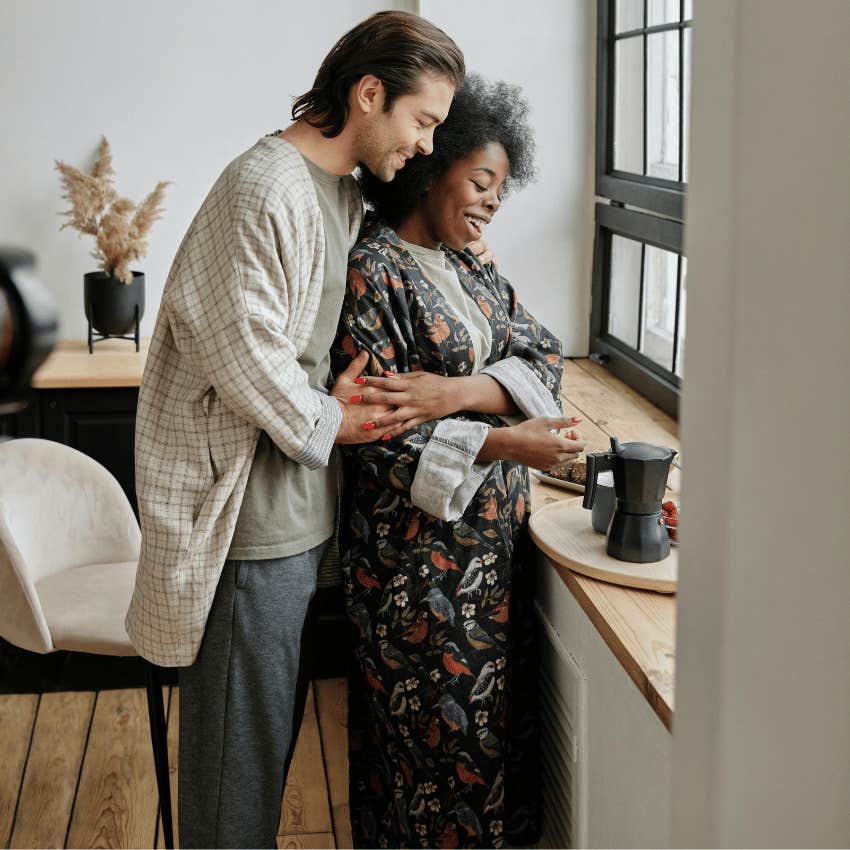4 Ways I Healed From Human Giver Syndrome — 'Women Are Socialized To Serve Others'
Breaking free from Human Giver Syndrome isn’t easy.
 Anatoliy Karlyuk | Shutterstocl
Anatoliy Karlyuk | Shutterstocl Human Giver Syndrome is the theory that some people — primarily women — are culturally expected to offer their time, energy, and effort to everyone around them while receiving little or nothing in return. Amelia and Emily Nagoski explore the concept in their book Burnout: The Secret to Unlocking the Stress Cycle. (Unlike most stress-relief books, this one has science-backed advice tailored specifically to women, and I’d highly recommend it to anyone else who’s enraged by the gender gap in medical research.)
As women, we’re taught that our brains exist to solve problems for other people. Our emotions are inconvenient unless we use them to nurture husbands and children. Our bodies are built for men’s satisfaction. If we’re not serving others, we supposedly have no inherent value, which explains why male politicians are outraged by the childless cat lady movement.
For me, Human Giver Syndrome is a social and spiritual conundrum. On one hand, I’m a feminist and journalist who’s well-acquainted with the data: Women are less valued, prioritized, and acknowledged than men. This irritates me. On the other hand, I believe on a spiritual level that all humans are here to connect with and serve each other.
So how do I reconcile this paradox and overcome my people-pleasing tendencies? It’s not easy. It takes conscious awareness, neuroplasticity, boundary-setting, and in some cases, kicking people to the curb. That said, it’s been worth every ounce of effort.
Here are 4 ways I healed from Human Giver Syndrome:
1. I found a partner who I want to serve because he deserves it
 Jack Sparrow | Pexels
Jack Sparrow | Pexels
A little-known secret about me? I genuinely love baking pies, decorating my home, and hosting dinner parties. It’s a tough thing for me to admit, granted that a) I singlehandedly bought my house with money from my business, and b) I write articles about how trad wives are softcore entertainment for misogynists.
But here’s the difference between me and a trad wife: I now refuse to do those things because people expect it. I only do them when I have the capacity, and for people who deserve it. Whereas past boyfriends acted entitled to my care or, worse, didn’t acknowledge it at all, my current partner notices and appreciates everything. He thanks me profusely for cooking, cleaning, hosting his family, and reorganizing the pantry. He says thank you every time I fill the soap dispenser in the bathroom.
He’s appreciative because he knows I don’t have to do those things — I choose to. And in return, he serves me by being an equal partner and a wonderful human being.
2. I prioritize people who speak my love language
It’s cliché, but The Five Love Languages by Gary Chapman changed how I view all types of relationships: romantic, platonic, and familial. If you haven’t read this relic from 1992, an old white pastor claims that people give and receive love differently — and according to science, he’s right. Some people show their love with gifts. Others do you favors or spend quality time with you. Some express love through physical touch.
My love language is words of affirmation, which makes sense; I’m a writer. But for years, I didn’t know that, so I self-sabotaged. I dated people who were bad at expressing themselves and I deflected every compliment I got, ironically discouraging people from giving me the exact thing I craved. Now, I surround myself with people who speak my love language. I also learned how to gracefully accept a compliment.
My partner regularly tells me that I’m smart, strong, valuable, and funny. I choose friends who express their appreciation and affection. I told my parents that their verbal praise meant the world to me, and what do you know? They listened. For the first time in my life, I’ve loved the exact way I want to be loved, which fills my cup so I can better love others.
3. I say no when my gut tells me to
 Hassan OUAJBIR | Pexels
Hassan OUAJBIR | Pexels
In her memoir Untamed, Glennon Doyle describes something she calls “the Knowing.” It’s a gut feeling that communicates in temperatures — cold is bad, warm is good — and you can use it as a compass to navigate your decisions. Doyle writes:
“I know that’s hard for you to accept because you have been at war with your body for so long. You think your body is bad, but it is not. It’s wise. Your body will tell you things your mind will talk you out of. Your body is telling you what direction life is in. Try trusting it. Turn away from what feels cold. Go toward what feels warm.”
Now, every time I meet a new person, or I get invited somewhere, or I’m offered a new opportunity, or I feel pressured to give when I might not have the capacity, I drop down into my Knowing. I look around for the truth that exists underneath my logical brain and social conditioning. If it’s warm, I do it. If it’s cold, I say no — no matter what.
Doyle’s right. It’s not easy for me to trust my body, especially while recovering from a dissociative disorder, but my Knowing has never led me astray. Rather, it’s led me towards incredible people, amazing opportunities, and the strength I need to put myself first.
4. I cut out the people who won’t make room for me
Personally, this was the hardest part about healing from Human Giver Syndrome. When you start drawing boundaries and honoring your Knowing, people will inevitably act out. The old you existed to serve them. The new you stands firm in your autonomy. Change is uncomfortable for everyone, but especially for those who benefited from the way things were before.
They’ll feel threatened by your progress. They’ll become resentful of the fact that you’re no longer willing to make yourself small so they can make themselves big. They’ll squirm at the sight of the mirror you’re holding up to them: “That person changed,” the reflection says. “Am I willing to change alongside them?” Some will. Most won’t. That’s okay. Let them go.
I believe we’re on this earth to serve each other — but we are not serving someone when we absorb all of their discomfort. Instead, we’re absolving them of their responsibilities. Stopping them from learning lessons. Preventing them from becoming the best human they can be. I’ve learned to honor myself first, so I can know my inherent value. From this space of integrity and wholeness, I serve others not out of obligation, but because I genuinely want to.
Maria Cassano is a writer, editor, and journalist whose work has appeared on NBC, Bustle, CNN, The Daily Beast, Food & Wine, and Allure, among others.

